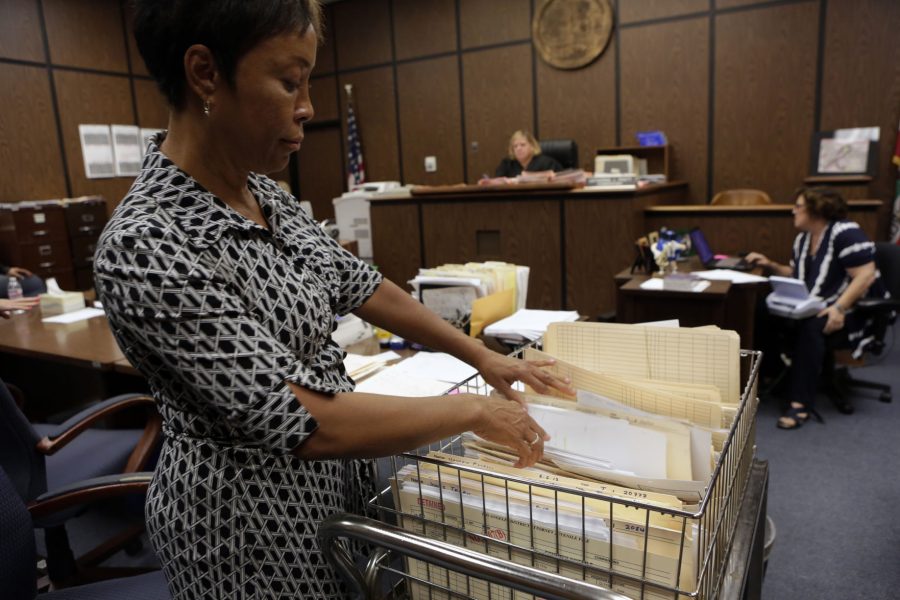Human trafficking remains an issue in Wilmington
Prosecutor Lori Lee Gray with a cart full of case files in the court of Commissioner Catherine Pratt, who handles sex trafficking cases at Compton court in Compton, Calif. (Irfan Khan/Los Angeles Times/MCT) This is a sight that is not uncommon in Wilmington, N.C.
September 14, 2016
Despite the lack of community awareness in Wilmington, the issue of human trafficking remains relevant worldwide. However, convenience of transportation, tourist attractions and port access have made Wilmington especially an unfortunate hot spot for human exploitation operations.
Human trafficking operates with stealth in order to survive, which explains why so many citizens are ignorant to its presence.
“Education and knowledge of trafficking in persons among all members of society are key to beating human traffickers,“ stated Dr. Sairsree Chutikul, a member of the National Committee to Combat Trafficking in Persons of Thailand, in a United Nations report on human trafficking awareness.
Moreover, victims of more locally centered operations are often written off as voluntary sex workers while being exploited in strip clubs, hotels or street corners. A misconception exists that all women working at strip clubs, on street corners or conducting their business over the Internet chose their fate.
After being identified as a target, exploiters will befriend and coerce women into a situation where they feel protected. The relationship is founded on creating a dependency where the women are completely reliant on their exploiters for mental, emotional and financial stability.
“Traffickers employ a variety of control tactics, including physical and emotional abuse, sexual assault, confiscation of identification and money, isolation from friends and family, and even renaming victims,” explained Polaris Project, a charity designed to prevent human trafficking, on its website. Dependency breeds a feeling of entrapment and essentially enslavement.
The National Human Trafficking Resource Center explains that although there is not a single profile for trafficking victims, there are conditions that lead to higher susceptibility. Sexual exploiters often target local women from unstable or non-traditional backgrounds. These women may have been part of the foster care system, experienced previous sexual abuse or be living on the street.
The combination of a troublesome past and the intimidation from their pimps places women in a state of vulnerability.
“Just because her pimp isn’t in the car with them doesn’t mean he wasn’t in control of the situation,” said former Assistant New Hanover District Attorney Lindsey Roberson in an interview with The Star News. Roberson remains active in Wilmington’s effort to conquer the human trafficking industry.
Protecting the victims of human trafficking entails not only remembering their status as victims as opposed to perpetrators but also being able to actively identify situations of sexual exploitation. Polaris defines a set of potential “red flags,” that could indicate a situation of exploitation, ranging from excessive work hours to malnutrition and increased anxiety.
Police departments across the state have begun to recognize the importance of identifying and protecting victims of trafficking.
“North Carolina in 2011 joined a growing list of states trying to educate police forces by adding a two-hour block of instruction on human trafficking to its 620-hour basic law enforcement curriculum, which every officer must complete to become certified,” according to a report by Jennifer Fisher of the N.C. Department of Justice.
Additionally, the North Carolina Coalition Against Human Trafficking is consistently working to increase education, advocacy and legislation to aid the victims of human trafficking. Many believe that continuing to enlighten the tourism sector and local residents of the presence of human trafficking in Wilmington can surge recognition and hopefully bring increased aid and protection to victims.















